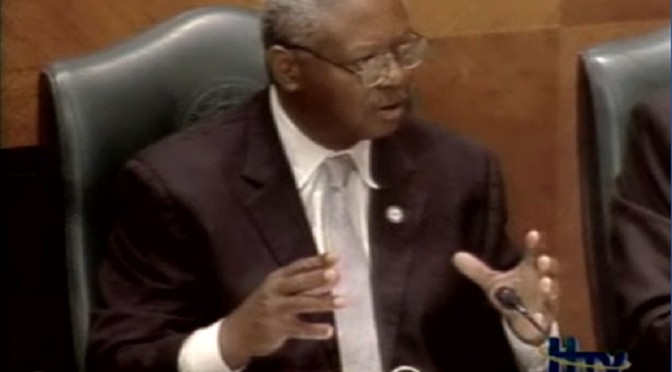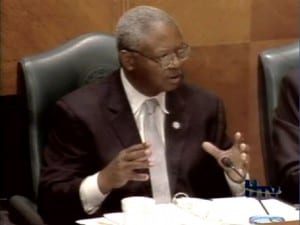Last week, I had the honor of doing something that I’ve yet to do while living in Houston… I attended Houston City Council at City Hall. Sure I have watched the meetings all the time, but attending gives additional layers of perspective that just don’t, can’t come across through the HTV cameras.
Anyway, it’s more than sufficient to say that I picked a very interesting day to attend.
On the whole, the meeting was as expected, with everyone focused, collegial and moving rapidly through the city’s business. But when Council reached the last item on the agenda a 380 agreement to incentivize CostCo to build in Houston’s far-west ETJ, things became contentious.
“We just came out of a brutal budget battle, and I believe that corporations should get involved in our summer jobs programs, our after school programs, and actually help our citizens do better. The time is now to ask those corporations for help… I was told in the briefing that no matter what we say at the this council table that… the contract is final, it’s done. That part I understood. That part I resent…” Burks said.
The Mayor reminded Burks that none of those programs were part of the deal. Council Members Noriega, Pennington and Gonzalez immediately chimed in supporting the 380, citing that it’s empty land, and that Costco is “ready to develop somewhere”. If they didn’t choose the Houston ETJ, they were just as ready to take their development, and any tax revenue it could generate, to Katy.
But to Council Members Burks, and now Bradford, that answer just wasn’t good enough.
“Just a few weeks ago, we had a discussions about summer jobs, and senior citizens’ [tax] relief, but now we can afford to give [tax breaks] to CostCo. I haven’t heard anybody articulate the real need for the incentive… I’ll read from [today’s Chronicle editorial] for just a second…’While the city looks to budgets spread thin to fix our roads, we’re giving tax cuts to corporations to build towers and open stores in Houston, without any evidence that these incentives are actually necessary. This questionable use of taxpayer dollars deserves serious contemplation from our elected officials.’ Have we really delved into this to conclude that this incentive is necessary? That’s what I’m hung up on” Bradford said.
And of course Burks came back in to close his thoughts…
“I’m getting tired, mayor and council, of hearing, ‘We don’t have any money.’… We give all these incentives for rich folk do all sorts of rich things, but poor folk are still being hurt. And they vote too. We’ve [left them out] too often and for too long.”
The Mayor immediately shot back to Burks…
“Council Member I’m afraid you’re going to be sorely disappointed. I think most of the things you have mentioned are outside of the purview of an economic development contract.”
After all the back-and-forth, the 380 deal passed 12 to 3.
But what you may not have seen away from the HTV cameras? For Burks and Bradford, this was a clearly intentioned stance… perhaps political, perhaps not… to appeal to their community. Given that protesters (in the aftermath of the Trayvon Martin verdict) ground Tuesday’s Public Session to a halt, they used this deal to voice some community-wide frustrations, and to highlight what they see as a lack of fairness and inequality. And let’s just face facts… it certainly cannot hurt Bradford or Burks to be fighting for fairness in an election season. They are well aware of where this message will resonate with the most clarity.
Perhaps there were better reasons to vote against the 380 deal than to heap social injustice onto it, but nonetheless, I think that Council Members Burks and Bradford made important points. As great and glitzy as Houston appears in magazines, there are still some gross inequalities throughout this city. Our roads and bridges are in sub-standard condition, the mass transit system is grossly under-funded, and our water and sewage infrastructure can barely keep up to meet the increasing demands of new development. Just as Burks and Bradford pointed out, the city struggled to find money for summer jobs programs and Veteran’s services in under-served neighborhoods. It makes sense that those who represent those neighborhoods should give pause to tax breaks for Billion- Dollar corporations while our poorest communities continue to do without. Given this as the reality in Houston, we should apply a high level of scrutiny to which entities receive substantial city tax breaks, and always be mindful of who have to do without.
Off the Kuff has thoughts on this as well.

